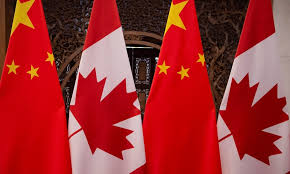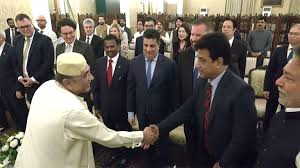Canada, China agree to ‘regularise communications’

Canada and China have agreed to regularize channels of communication, the office of Canadian Prime Minister
Mark Carney said, after a period of strained diplomatic ties between the two countries.
Tensions in the relationship soared following Ottawa’s arrest of a senior Chinese telecom executive on a US warrant
in 2018, remaining high in subsequent years amid disputes over human rights and election interference allegations.
During the call between Carney and Chinese Premier Li Qiang, “the leaders exchanged views on bilateral relations,
including the importance of engagement, and agreed to regularize channels of communication between Canada and
China,” the prime minister’s office said in a statement late on Thursday.
They also discussed trade and “committed their governments to working together to address the fentanyl crisis,” the
statement added.
According to Beijing’s state news agency Xinhua, Li told Carney that relations between the countries “have faced
unnecessary disturbances and encountered serious difficulties” in recent years.
He added that China is “willing to work with Canada to jointly uphold multilateralism and free trade” in the face of
growing unilateralism and protectionism, Xinhua reported, noting that the call came at Carney’s request.
The comments were a reference to major disruptions in global trade throughout recent weeks caused by US President
Donald Trump, who has slapped stinging tariffs on allies and adversaries alike since beginning a second term in
January.
China and Canada — both major US trading partners — have been on the receiving end of Washington’s recent
tariff blitz and are currently engaged in negotiations with the Trump administration.
Carney surged to victory in Canada’s late April election, a stunning comeback for his Liberal Party that had looked
headed for a sure defeat at the start of the year.
Beijing stopped short of congratulating Carney following the result, though its foreign ministry said at the time that
China was open to improving bilateral ties.
Canada’s 2018 arrest of Huawei executive Meng Wanzhou spurred Beijing to take retaliatory measures that plunged
relations into a deep freeze, detaining two Canadians — Michael Spavor and Michael Kovrig — on espionage
charges.





